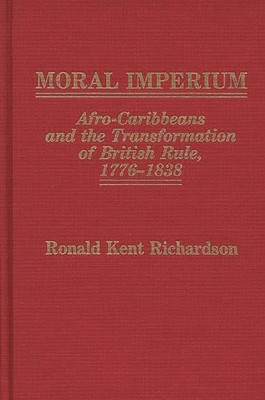
- We will send in 10–14 business days.
- Author: Ronald Richardson
- Publisher: Praeger
- ISBN-10: 0313247242
- ISBN-13: 9780313247248
- Format: 14 x 21.6 x 1.6 cm, kieti viršeliai
- Language: English
- SAVE -10% with code: EXTRA
Reviews
Description
During the past decade, the problem of British slave emancipation has generated considerable historiographical debate. Yet, until now, this debate has emphasized the relative importance of ideals and material self-interest in the British emancipation movement. In Moral Imperium, Ronald Richardson offers a new assessment of the relative importance of ideas, religious enthusiasm, national interest, and political circumstances. Arguing that historians have yet to develop an understanding of the impact of the Afro-Caribbean population on the development of British anti-slavery thought in general and the anti-slavery movement as a whole, he contends that abolition and emancipation were carried out in the context of British rule and were designed to create a social environment that would be receptive to British needs.
EXTRA 10 % discount with code: EXTRA
The promotion ends in 21d.18:45:00
The discount code is valid when purchasing from 10 €. Discounts do not stack.
- Author: Ronald Richardson
- Publisher: Praeger
- ISBN-10: 0313247242
- ISBN-13: 9780313247248
- Format: 14 x 21.6 x 1.6 cm, kieti viršeliai
- Language: English English
During the past decade, the problem of British slave emancipation has generated considerable historiographical debate. Yet, until now, this debate has emphasized the relative importance of ideals and material self-interest in the British emancipation movement. In Moral Imperium, Ronald Richardson offers a new assessment of the relative importance of ideas, religious enthusiasm, national interest, and political circumstances. Arguing that historians have yet to develop an understanding of the impact of the Afro-Caribbean population on the development of British anti-slavery thought in general and the anti-slavery movement as a whole, he contends that abolition and emancipation were carried out in the context of British rule and were designed to create a social environment that would be receptive to British needs.


Reviews